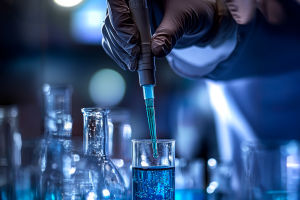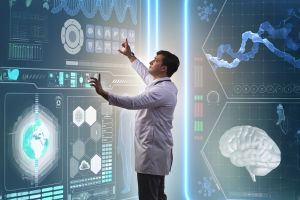Hypertension, commonly known as high blood pressure, affects millions globally and remains one of the leading causes of cardiovascular and renal complications.
Its effects on kidney health are profound, triggering a cascade of events that can compromise renal function over time.
Understanding Hypertension and Kidney Disease
Hypertension refers to consistently high blood pressure levels, generally defined as readings above 130/80 mmHg. Over time, this chronic condition can damage blood vessels throughout the body, including those in the kidneys. The kidneys are responsible for filtering waste from the bloodstream, and their intricate network of blood vessels is particularly vulnerable to the stress caused by high blood pressure.
Dr. John R. Camm, a renowned cardiologist, emphasizes that the kidneys play a pivotal role in regulating blood pressure. However, the relationship is bidirectional. While hypertension can damage the kidneys, kidney disease can, in turn, exacerbate blood pressure levels, creating a vicious cycle. This interaction underscores the critical need to manage blood pressure effectively to preserve kidney health.
The Mechanisms Behind Kidney Damage
The kidneys contain millions of tiny filtering units called nephrons, each consisting of a glomerulus (a network of tiny blood vessels) and a tubule. These structures are crucial for filtering blood and maintaining electrolyte balance. When blood pressure is elevated, the force exerted on the walls of the glomeruli can cause them to become damaged over time.
This damage leads to several changes in kidney function:
Glomerulosclerosis: Chronic hypertension results in the thickening and scarring of the glomerular walls, impairing the kidney's ability to filter blood effectively.
Renal Artery Stenosis: High blood pressure can also contribute to the narrowing of the renal arteries, reducing blood flow to the kidneys, further compromising their function.
Tubulointerstitial Fibrosis: Damage to the tubules, essential for reabsorbing nutrients and fluids, results in fibrosis (scarring), leading to a progressive decline in kidney function.
As renal function declines, waste products like urea and creatinine build up in the bloodstream, leading to a condition known as chronic kidney disease (CKD). Dr. Susan B. L. Chan, a nephrologist specializing in hypertension-related kidney damage, notes that early intervention is crucial to slow the progression of CKD and prevent end-stage renal disease (ESRD).
The Role of Blood Pressure Medications in Preventing Kidney Damage
Recent studies have shown that controlling blood pressure early in the disease can significantly reduce the risk of kidney damage. Angiotensin-converting enzyme (ACE) inhibitors and angiotensin receptor blockers (ARBs) are commonly prescribed to manage hypertension and protect kidney function. These medications work by blocking the hormones responsible for constricting blood vessels, thus lowering blood pressure and reducing strain on the kidneys.
A 2024 study published in the Journal of Hypertension confirmed that patients with both hypertension and CKD who were treated with ACE inhibitors had a lower rate of progression to ESRD compared to those who were not. These findings highlight the importance of tailored treatment plans that address both hypertension and kidney health simultaneously.
The Link Between Hypertension and End-Stage Renal Disease
Untreated or poorly managed hypertension is a major risk factor for end-stage renal disease (ESRD), where kidney function deteriorates to the point where dialysis or a kidney transplant is necessary. A study by the American Heart Association (2025) found that 50% of individuals with hypertension eventually develop some degree of kidney dysfunction, and 15-20% of them progress to ESRD.
Patients with hypertension-induced kidney disease often experience an increase in protein levels, a sign of kidney damage. This condition, known as proteinuria, is an early indicator that the kidneys are under stress and may be on the path to irreversible damage. Early detection and management of proteinuria can improve long-term kidney outcomes.
Preventive Measures and Early Detection
Given the significant impact hypertension can have on kidney health, early detection and proactive management are essential. Regular blood pressure monitoring, along with kidney function tests such as serum creatinine and glomerular filtration rate (GFR), can help identify those at risk of kidney disease.
Moreover, lifestyle modifications such as adopting a low-sodium diet, engaging in regular physical activity, and reducing stress can help manage blood pressure and protect kidney function. Dr. Chan advocates for a comprehensive approach that includes medication, lifestyle changes, and ongoing monitoring for patients with high blood pressure to mitigate the long-term risks of kidney disease.
The connection between hypertension and kidney health is clear: untreated high blood pressure can lead to a cascade of renal complications, potentially culminating in kidney failure. As the understanding of this relationship deepens, medical professionals continue to emphasize the importance of early intervention and comprehensive management strategies.
For patients living with hypertension, regular monitoring, proper medication, and lifestyle adjustments are crucial in maintaining both heart and kidney health. By focusing on these key areas, it is possible to prevent the damaging effects of high blood pressure and preserve kidney function for years to come.


